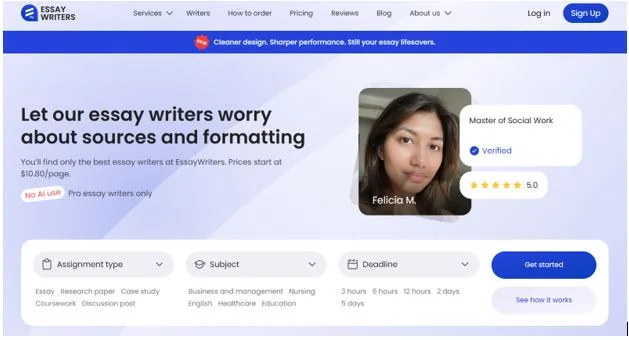Fleet Truck Glass Repair: The Overlooked Key to Uptime, Safety, and DOT Compliance
When people talk about keeping a truck fleet profitable, they usually focus on fuel costs, tires, or preventive maintenance. But there’s another factor quietly draining budgets across the Southeast — damaged glass.
From cracked windshields to failing seals, glass issues are among the most common (and most underestimated) causes of downtime in the logistics world. And for every truck that’s parked waiting on a fix, deliveries get delayed, schedules shift, and customers start asking questions.
That’s why proactive fleet truck glass repair isn’t a minor detail — it’s a serious part of your operational strategy.
The Cost of Ignoring Small Glass Damage
According to fleet maintenance reports, the average Class 8 truck racks up nearly 100,000 miles a year. On those miles, the windshield takes a beating from gravel, debris, and temperature swings — especially in Georgia’s hot, humid climate.
Here’s what happens when minor damage goes unchecked:
- Cracks spread under vibration and can compromise the entire windshield structure.
- Leaking seals allow moisture to enter, corroding interior components and wiring.
- Visibility hazards reduce safety and increase the risk of inspection failures.
- DOT violations can sideline a truck immediately, costing both time and reputation.
In short, neglecting glass isn’t saving money — it’s creating an invisible line item of losses.
Fleet managers who invest in timely fleet truck glass repair often recover those costs several times over through improved uptime and fewer compliance issues.
What Fleet-Focused Glass Service Actually Looks Like
Not every auto glass shop is equipped — or willing — to handle the demands of a commercial fleet. The right partner operates differently from day one:
- Fleet Scheduling Integration
They work around your dispatch and maintenance calendar, not the other way around. - Mobile-First Response
Trucks stay in your yard or warehouse while certified techs handle repairs on-site. - DOT-Compliant Materials & Adhesives
Every job uses safety-approved glass and urethane suited for heavy-duty vehicles. - Camera Calibration & Sensor Reprogramming
Modern trucks use ADAS systems for lane departure and collision alerts — these must be recalibrated after replacement. - Centralized Billing & Record-Keeping
Instead of tracking dozens of individual invoices, fleet managers get consolidated reports for maintenance logs and audits.
A company built for fleet truck glass repair doesn’t just fix windshields — it supports your operation like an extension of your own team.
Why Mobile Service Is a Game-Changer for Southern Fleets
Ask any fleet supervisor in Atlanta, Savannah, or Birmingham what the biggest challenge is, and you’ll hear the same thing: downtime.
When a truck has to leave its route for repairs, that’s lost revenue every minute it’s parked.
Mobile service changes that equation entirely.
By bringing the shop to your fleet yard, you eliminate:
- Driver idle time
- Route rescheduling headaches
- Unnecessary fuel and towing costs
It’s the simplest way to keep rigs on the road — and in the South, where freight runs hot year-round, that’s how you stay competitive.
Partnering with mobile specialists like Glass Plus GA lets you schedule repairs early in the morning, after shifts, or between dispatches — whatever works best for your operation.
Compliance: The Quiet KPI Every Fleet Manager Tracks
DOT inspections don’t always make headlines, but they make or break your CSA score. And one of the most common reasons for failed inspections? Impaired driver visibility from damaged glass.
Regulations (FMCSR §393.60) specifically prohibit operation of a vehicle with cracks or discoloration in the driver’s line of sight.
That means one neglected windshield can take a truck off the road — and put a dent in your safety record.
The right glass partner understands this and makes compliance part of their process, not an afterthought. From certification documentation to post-service inspection reports, every replacement should leave you confident your trucks are road-ready and regulation-compliant.
Fleet Maintenance Is Moving Toward Predictive — Glass Should Too
Fleet managers today rely on predictive maintenance tools for engines, brakes, and tires. The same mindset should apply to glass.
Here’s how progressive fleets are managing it:
- Logging glass inspections every 90 days
- Assigning techs to report chips during daily pre-trip checks
- Partnering with mobile services for on-site repairs during off-hours
- Including glass checks in PM schedules to catch issues before they spread
Proactive glass maintenance isn’t busywork — it’s business intelligence. It keeps trucks safer, schedules tighter, and costs predictable.
Why Choose a Local Southern Partner
Fleet operations in Georgia, Alabama, and the Carolinas face a unique mix of challenges — heat, humidity, long-haul miles, and plenty of gravel. A local partner understands that better than any national chain ever could.
With roots in Atlanta, Glass Plus GA combines top-tier materials and equipment with old-fashioned Southern dependability. Their technicians show up on time, work efficiently, and understand what it means to be part of a fleet’s extended family.
For them, fleet truck glass repair isn’t just about replacing parts — it’s about protecting the people and businesses that keep our highways moving.
Final Word
Your fleet is your livelihood — and every truck in it represents schedules, contracts, and commitments that can’t afford to break down over a piece of glass.
Choosing a dedicated fleet truck glass repair partner means more than fixing cracks. It means building reliability, safety, and professionalism into every mile your drivers travel.
With expert technicians, mobile service, and a genuine understanding of Southern business values, Glass Plus GA stands ready to keep your rigs safe, compliant, and earning — mile after mile.




